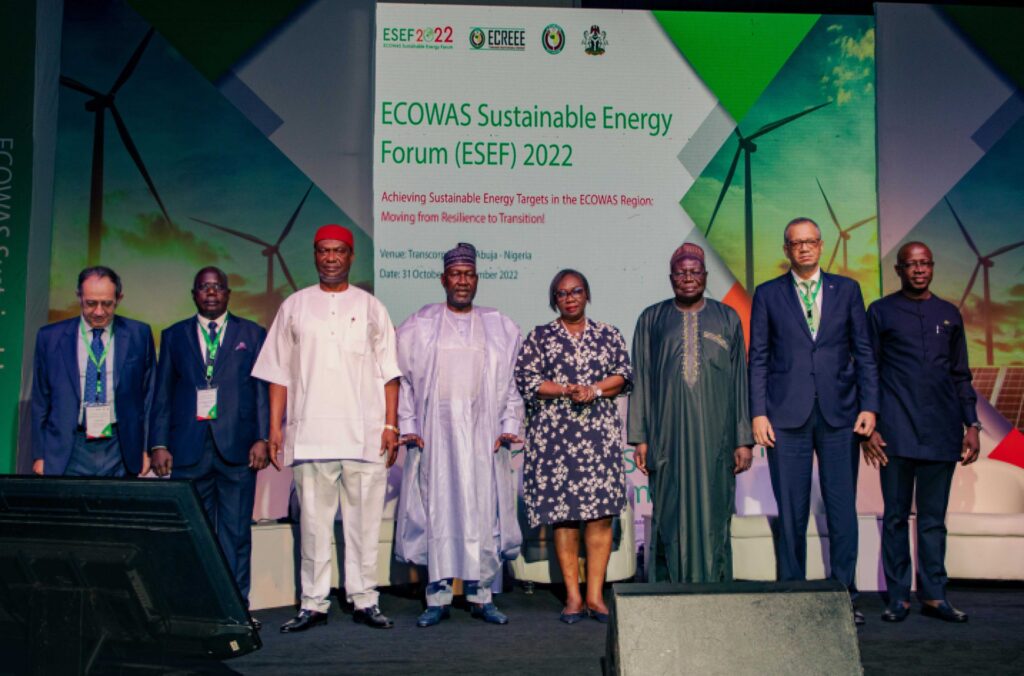ECOWAS states are planning to create an electricity market that will span West Africa by next year.
ECOWAS (the Economic Community of West African States), is planning to create a regional electricity market by next year. “We are developing a new energy policy for the region that will be operational by June next year,” said H.E. Sediko Douka, ECOWAS Commissioner for Infrastructure, Energy and Digitalisation.
ECOWAS Sustainable Energy Forum
Commissioner Douka was addressing the 7th Edition of the ECOWAS Sustainable Energy Forum (ESEF 2022) from 31 October to 1 November. Held at the Transcorp Hilton Hotel Abuja in Nigeria, with more than 300 delegates in attendance, the event focused on the theme of ‘Achieving Sustainable Energy Targets in the ECOWAS Region: Moving from Resilience to Transition’.
The event opened with a high-level ceremony on 31 October featuring ECOWAS leaders and international partners reaffirming their commitment to improving energy access for all and setting a path for energy transition in the West African region.
Catalyzing public and private partnerships
ESEF 2022 aimed to catalyze public and private partnerships and contribute towards creating an enabling policy and regulatory environment and mobilizing new investments in the ECOWAS region’s sustainable energy sector.
H.E. Engr. Abubakar Aliyu, Nigeria’s Minister of Power, said Nigeria’s Energy Transition Plan was a prime example of the policy evolution required to deliver both growth in energy consumption for development and the climate response to preserve the planet.
“The importance of energy to human development cannot be over emphasized. Its relevance extends beyond socioeconomic development to include security and sovereignty, foreign policy as well as international trade,” said Minister Aliyu.
European support
H.E. Juan Ignacio Sell, Ambassador of Spain to the Federal Republic of Nigeria and ECOWAS, in his speech, warned, “We are failing short of the target we set for renewable and green energy. Energy poverty and energy security needs to be addressed.” He reaffirmed the EU’s commitment to assist the region in infrastructure and capacity building.
According to United Nations Deputy Secretary-General Ms. Amina J. Mohammed, clean energy programs in Africa have the potential to create over 6 million new jobs by 2050.
